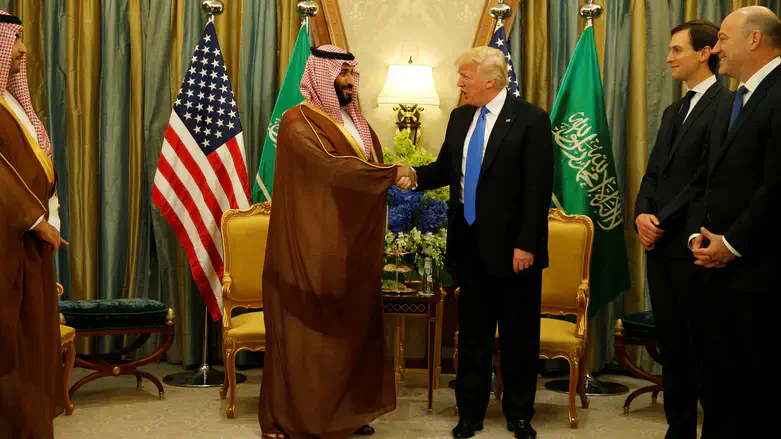
The United States has dropped its requirement that Saudi Arabia normalize ties with Israel as a condition for advancing civil nuclear cooperation, Reuters reported on Thursday. This change in approach comes as US President Donald Trump prepares for a diplomatic visit to the kingdom, according to sources familiar with the discussions.
Previously, nuclear negotiations were linked to a broader deal involving a US-Saudi defense agreement and the normalization of Saudi-Israel relations. However, Saudi officials have maintained that they will not formalize ties with Israel without the establishment of a Palestinian state, a position that has gained further traction amid the ongoing war in Gaza.
Despite revived engagement, a civil nuclear deal remains elusive. One of the primary obstacles is Saudi Arabia’s reluctance to accept the nonproliferation requirements outlined in Section 123 of the US Atomic Energy Act. This legislation restricts uranium enrichment and plutonium reprocessing, both of which are viewed as pathways to nuclear weapons development.
Saudi Energy Minister Prince Abdulaziz bin Salman has previously indicated the kingdom’s intention to enrich uranium domestically. In response, discussions have included the possibility of a compromise involving a controlled facility managed exclusively by US personnel on Saudi territory.
While no final deal is imminent, US Energy Secretary Chris Wright recently remarked that both nations are on a "pathway" toward a civil nuclear agreement. The initiative forms part of Riyadh’s broader Vision 2030 strategy to diversify its economy and reduce its dependence on oil by developing alternative energy sources.
The visit by President Trump is also expected to include talks on a proposed arms deal worth over $100 billion and a significant increase in Saudi investment in the US. Trump has reportedly urged Riyadh to raise its investment pledge from $600 billion to $1 trillion.
This upcoming trip, following a recent visit to Rome, marks a renewed focus by the Trump administration on solidifying ties with Gulf allies, a cornerstone of US foreign policy during his first term in office.
